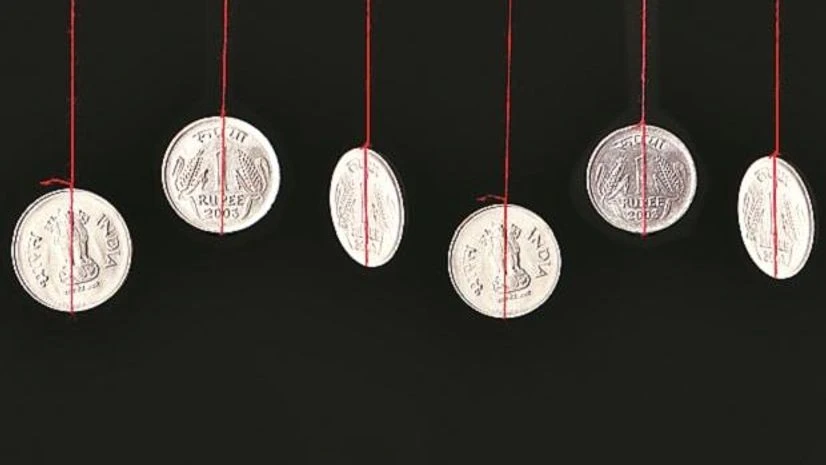As the Indian rupee plunged to a fresh record low of 70.60 to a US dollar on Wednesday, a top government official said there is no need to be alarmed as, despite the short-term volatility, the country is going through "an exceptional period of stability".
The official said if one takes the long-term view, the rupee is not depreciating against most world currencies and that in fact, it is a case of strengthening of dollar rather than weakening of rupee.
"I am not sure why everybody is concerned... For five years now, we have been stable pretty much against every currency. Even against the dollar, if you take a five-year view, we have only depreciated relatively little," Principal Economic Adviser to Finance Ministry Sanjeev Sanyal told IANS in an interview.
"Against the pound, for example, we have appreciated in the last five years. We are broadly stable against Euro. The point I am making is we are not depreciating against most world currencies; what is happening is that the US dollar is strengthening," he added.
Asked if the government is comfortable with the situation, he said: "It's an evolving situation... There is no such thing as equilibrium in economics."
Sanyal said had there been a domestic inflation problem, the depreciation of rupee would have complicated the situation. But, he said, India has inflation in control "which gives us some space to allow this process to happen".
"As per the economic law of impossible trinity, once you have open capital accounts you can either control the monetary policy or the exchange rate," he said, adding that since India has created an explicit monetary policy, the exchange rate has to be determined by the market.
More From This Section
"So, while you can slow (down) the adjustment using the foreign exchange reserves, in the medium term it will find its own level," he added.
Sanyal insisted that the current depreciation of rupee would not have any bearing on the economy.
"We have signed up for this particular model. You have to get out of the idea that there is some sort of a value that we target; we are not doing that at all. The point is, it's a matter of making adjustments according to the evolving situation."
"There is no clear trend in our (rupee) depreciating, and in fact, if you take a longer time in history, this is the only time we have not been systematically declining against world currencies.
"So rather than bemoan the situation...this has been an exceptional period of stability. On a basket basis, we have appreciated...real effective exchange rate, we have appreciated," Sanyal said.
The economist added the key was to maintain reasonable stability over longer periods of time and allow market adjustments where necessary in the medium term, and avoid short-term unnecessary volatility.
"And we have more than adequate foreign exchange reserves to manage any sudden sharp movement if there is a disruption in the world economy," he said.
Sanyal said it is not in India's interest for rupee to also strengthen along with the US dollar when other currencies, including Chinese Yuan, are also depreciating.
"What is the purpose of strengthening with the US dollar if all our trading partners and competitors are depreciating?" he asked.

)
